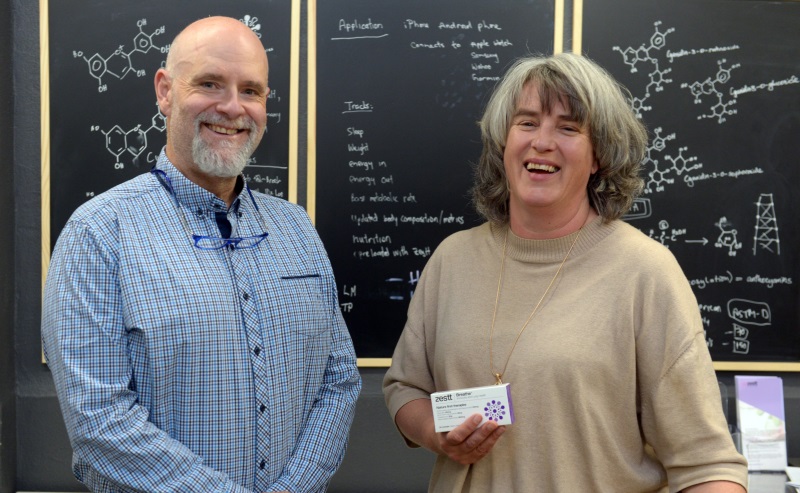
Helping a 90-year-old woman to sleep and breathe better was what made Anna Campbell realise her company’s product could make a difference.
The co-founder of Dunedin bioactives company Zestt Wellness said people experiencing daily respiratory problems could notice a difference ‘‘straight away’’ thanks to Zestt Breathe+ — a nutraceutical plant-based lozenge and liquid which helped reduce some of the symptoms associated with inflammation in the lungs and increased oxygen levels around the body.
One customer from the United States had rung to tell her about the difference the product had made to his 90-year-old mother, who suffered from a respiratory illness but was now able to breathe and sleep better, Dr Campbell said.
‘‘At the end of the phone call, he just said to me, ‘God bless you’.
‘‘I’m not a religious person or anything, but I kind of realised then what a great honour it was to be able to help people.
‘‘That was a really big moment and I’ve had lots of customers contact us that are just so happy with the product.’’
Dr Campbell, who has a background in plant biotechnology, said the business was started because her fellow co-founder Darcy Schack suffered from the autoimmune disease sarcoidosis, which had led to chronic obstructive pulmonary disease (COPD) and had caused a lot of inflammation in his respiratory system.
He was needing to take 26 different pharmaceuticals, including some ‘‘pretty nasty’’ steroid doses, to downgrade the inflammation.
‘‘We’re both scientists, and we kind of figured out that there must be better ways of reducing inflammation than having to take 26 pharmaceuticals.’’
The lozenge, originally developed in liquid form, was marketed for those who wanted to breathe and sleep better, she said.
It contained anthocyanins, quercetin, zinc, New Zealand rātā honey and an oral probiotic from fellow Dunedin biotech company Blis Technologies.
Dr Campbell said Zestt had been selling the product as a nutraceutical to the New Zealand market for the past four years and was looking to expand to China, the US and Australia.
It is in the middle of clinic trials with the University of Otago and Dunedin Hospital, and the pilot trials had produced some ‘‘really good results’’ that showed the product did reduce inflammation and helped promote oxygen around the body.
There were a lot of immunity products in the supplement industry but not as many that targeted the whole respiratory system, nor with the scientific rigour behind their product.
The long-term aim was to sell the product as an over-the-counter medicine, as well as making it cheaper so it would be more accessible for people with low incomes, Dr Campbell said.
It had so far proven ‘‘really popular’’, with some customers making close to 50 repeat orders since the lozenge was launched.
Orders had been received from customers in Singapore, China, the US, United Kingdom and Germany — all by word of mouth, she said.
As well as being organic and natural, the product was really high in antioxidants.
‘‘So it’s good for your lungs but it’s also good for your body.’’
The company began investigating the product about a year before the Covid-19 pandemic, and had heard from a lot of people that it had helped them recover faster from the virus, she said.
Zestt tried to use New Zealand ingredients whenever it could, and Dr Campbell said it was her dream for the country to be seen as the health capital of the world.












